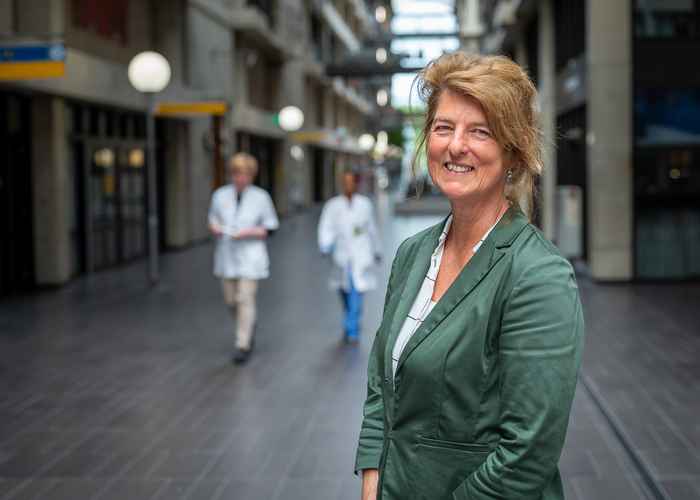Miranda Olff researches how to provide better care for students who experienced a traumatic event
17 August 2023

Olff is also researching whether people subsequently develop post-traumatic symptoms and whether they are able to access proper help. Through a contribution from the Spinoza Fund, Olff is able to carry out an additional study involving students. ‘We want to know how safe they feel. COVID-19 and MeToo are also contributing factors. We can use the study results to strengthen policies on providing care to students.’
Miranda Olff is professor by special appointment of Neurobiological mechanisms of prevention and treatment in trauma and posttraumatic stress disorders at Amsterdam UMC. ‘In the Netherlands, around 80% of people have experienced a potentially traumatic event, and only 25% of them received appropriate care’, she explains, with obvious passion.
The Voice affair and Covid
‘Around fifteen years ago, we assessed how frequently people in the Netherlands experienced potentially traumatic events and how many people developed ongoing symptoms as a result,’ Olff continues. ‘In that study, we found that 10% of them developed a disorder. Since then, the criteria in the handbook for classifying psychiatric disorders (the DSM) and the ICD (International Classification of Diseases) have changed. Complex post-traumatic stress disorder and a dissociative subtype have been added, and there is a new symptom cluster, “negative changes in cognition and mood”.’ Olff believes it’s high time we re-examined how frequently post-traumatic stress disorders are occurring in the Netherlands today, and whether people are receiving appropriate care. MeToo, The Voice affair and Covid also provided an impetus for the study.
Whether or not to seek help
The study – which Olff is conducting in collaboration with ARQ National Psychotrauma Centre – is identifying the symptoms people experience and the reasons why they choose to seek or not to seek help. Do they not know how to ask for help, do they feel ashamed, or is there no care available? And if they do receive care, is that care appropriate, and does it help? The grant from the Spinoza Fund has enabled Olff to examine a representative sample of an additional group of students from a range of secondary and higher education institutions. ‘We’re asking them what stressful events they have experienced in their lives – particularly during their studies. Have they experienced events involving inappropriate behaviour, of a sexual nature or otherwise, in dependent relationships? When, who was the perpetrator, and were they able to report it to a confidential adviser? Did they seek treatment, and were they able to access it?’
Gender focus
The study is also looking at the types of symptoms that develop: from stress-related and post-traumatic stress symptoms, to symptoms of anxiety and depression, and substance use (alcohol, drugs and nicotine). ‘We’re specifically focusing on gender’, says Olff. ‘We’re investigating whether the degree to which people are at risk of developing symptoms is determined by their sex at birth or their gender identity. We already know that adult women have a higher likelihood of developing stress-related symptoms, but what’s not yet clear is whether that’s also true among students. And we also don’t yet know whether and how it’s related to gender identity.’
Strengthening care policies
As Olff explains, the study will offer insight into the best ways to help students who have experienced inappropriate behaviour, whether of a sexual nature or otherwise. ‘We can use the study results to strengthen policies on providing care to students. If the study shows that they would prefer to talk to a peer than a confidential adviser, we should make that happen. And if it shows that shame is preventing students from seeking help, we should publicise how frequent inappropriate behaviour is, and run campaigns to raise awareness. If you experience an upsetting event, it’s extremely important for you to access appropriate help in a timely manner.’